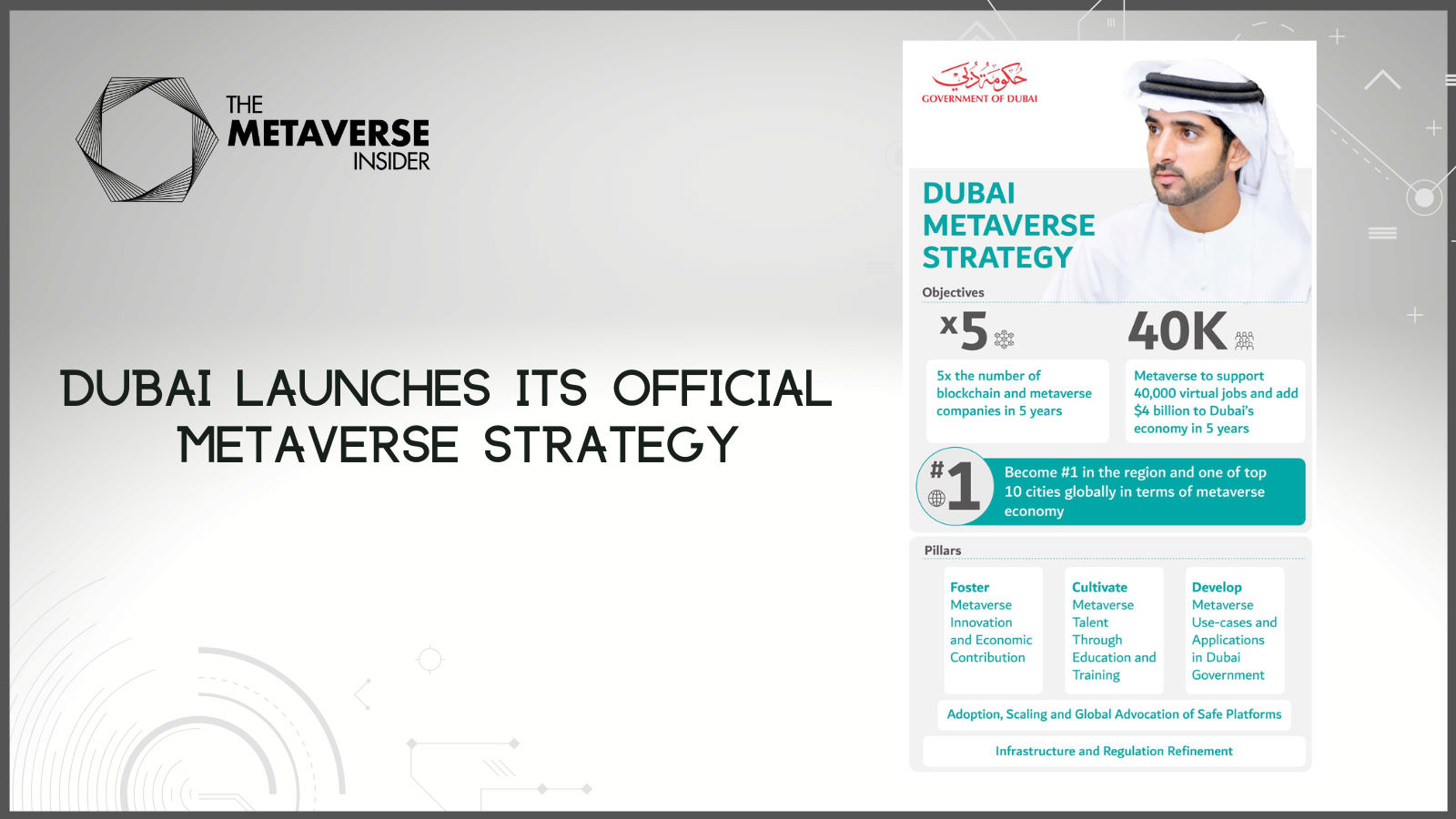On July 18th, Hamdan bin Muhammad launched the Dubai Metaverse strategy. This Metaverse Strategy includes increasing the presence of blockchain and metaverse companies by five times in 5 years.
This announcement was launched by Sheikh Hamdan bin Mohammed bin Rashid Al Maktoum, Crown Prince of Dubai and Chairman of the Dubai Executive Council, via his Twitter account. The announcement states that Dubai’s Metaverse strategy is to rank top 10 cities worldwide in the metaverse industry. The plan also says that the metaverse industry will support 40,000 jobs in this region and add $4 billion to Dubai’s economy in the next five years.
Fostering innovation with the Dubai Metaverse Strategy
The metaverse strategy aims to foster innovation, enhance the metaverse’s economic contributions through R&D collaborations, and promote advanced ecosystems utilising accelerators and incubators that attract companies and projects to Dubai.

It also supports the development of Web3 technology and its applications to create new governmental work models and development in vital sectors, including tourism, education, retail, remote work, healthcare, and the legal sector. The strategy also aims to develop global standards in building safe and secure platforms for users and develop metaverse infrastructure and regulations to accelerate the adoption of these technologies.
Key pillars
The strategy’s key pillars focus on extended reality (which blends the physical and virtual worlds), augmented reality, virtual reality, mixed reality, and digital twins (a virtual representation of an object or system). The strategy aims at leveraging real-time data, using machine learning and IoT, and employing AI simulation and blockchain to enhance the human thinking processes.
Data, network, cloud, and edge computing are technology pillars of the metaverse strategy that focus on real-world data that is obtained, validated, stored, processed, and managed. Other pillars include promoting the full deployment of 5G networks to enable edge computing and provide on-demand computer system resources. Edge computing allows data to be collected, stored, and processed locally via smart devices and local networks instead of the cloud.
Boosting the economy
VR and AR are two key enablers of the metaverse, responsible for 6,700 jobs and contributing $500 million to the UAE’s economy, which is expected to increase significantly in the future. The metaverse provides an array of economic opportunities. Globally, the value of venture capital and private equity financing in the metaverse reached $13 billion in 2021, while real estate sales in the metaverse surpassed $500 million last year.
Analysts estimate that the metaverse will contribute up to $5 trillion to the global economy by 2030. The market value of NFTs is expected to reach $80 billion, while consumer spending on in-game purchases is reckoned to reach $75 billion by 2025. Recent studies show that the daily active users on Roblox, one of the leading global metaverse communities, has increased to 55 million. At the same time, 59% of global consumers are keen to transition at least one of their everyday activities to the metaverse.
For more market insights, check out our latest Digital Twin news here.













